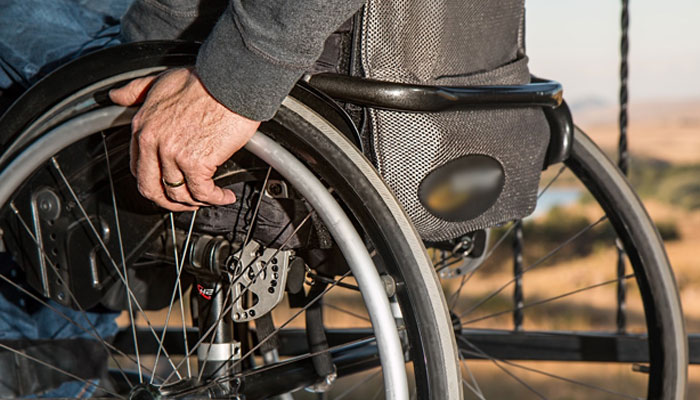Why Pakistanis are experiencing stroke 10 years earlier than global average?
Islamabad : People in Pakistan are experiencing strokes approximately 10 years earlier than the global average onset, primarily due to the rising prevalence of high blood pressure, diabetes, smoking, and elevated cholesterol, experts said on Tuesday. Early onset is also associated with diets high in salt and fat, along with increased stress levels, particularly common in urban areas.
During a seminar observing World Stroke Day at Shifa International, healthcare specialists reported that approximately half a million people suffer strokes annually in Pakistan, with an estimated 200,000 fatalities. They emphasized that lifestyle changes are crucial in preventing strokes and mitigating risk factors such as high blood pressure, elevated cholesterol, and physical inactivity. Experts said stroke is the second leading cause of death worldwide and a major contributor to disability, and Pakistan’s trends mirror these global patterns, with increased frequency driven by unique regional challenges.
“Sedentary lifestyles, obesity, unhealthy diets, and high stress levels are fueling early onset,” explained Dr. Muhammad Amjad, Consultant Neurologist and Chief of Neurology at Shifa International. He noted that one in six people is likely to experience a stroke during their lifetime, describing it as a “silent epidemic.” Experts further elaborated on how poor dietary habits, smoking, and lack of exercise particularly affect younger populations, intensifying stroke risk.
Dr. Raja Farhat Shoaib, a Consultant in Stroke Medicine and Neurorehabilitation, highlighted that a combination of high-fat diets, sedentary behavior, and elevated stress contributes to the increased incidence of strokes at younger ages in Pakistan compared to other countries. Dr. Sehrish Kazi, another Consultant Neurologist, outlined practical preventive measures, urging individuals to prioritize a diet rich in fruits, vegetables, and whole grains, while avoiding fried foods and sugary snacks. Regular exercise, controlling cholesterol and blood pressure, and getting adequate sleep can substantially reduce stroke risk, she emphasized.
Shifa’s CEO, Dr. Zeeshan Bin Ishtiaq, underscored the hospital’s commitment to improving stroke care by adopting treatment protocols aligned with international standards. “Shifa is dedicated to ensuring that stroke patients receive the highest quality care for optimal recovery,” he said, reaffirming the hospital’s focus on advancing neurorehabilitation and supporting stroke survivors on their recovery journey.
A critical component of stroke recovery discussed during the event was occupational therapy, presented by Senior Occupational Therapist Saima Kanwal. She explained how occupational therapy enables patients to regain independence and resume daily activities, supporting recovery through essential task training, assistive devices, and cognitive rehabilitation techniques. The seminar concluded with a call to action, encouraging Pakistanis to recognise stroke symptoms early and adopt preventive measures to protect themselves. Dr. Amjad emphasized the significance of sustained public awareness on stroke prevention and rapid response to symptoms, urging proactive health management and lifestyle adjustments to reduce the risk of stroke—a condition with lasting physical and emotional impacts.
-
 5 Celebrities You Didn't Know Have Experienced Depression
5 Celebrities You Didn't Know Have Experienced Depression -
 Trump Considers Scaling Back Trade Levies On Steel, Aluminium In Response To Rising Costs
Trump Considers Scaling Back Trade Levies On Steel, Aluminium In Response To Rising Costs -
 Claude AI Shutdown Simulation Sparks Fresh AI Safety Concerns
Claude AI Shutdown Simulation Sparks Fresh AI Safety Concerns -
 King Charles Vows Not To Let Andrew Scandal Overshadow His Special Project
King Charles Vows Not To Let Andrew Scandal Overshadow His Special Project -
 Spotify Says Its Best Engineers No Longer Write Code As AI Takes Over
Spotify Says Its Best Engineers No Longer Write Code As AI Takes Over -
 Michelle Yeoh Addresses 'Wicked For Good' Snub At 2026 Oscars
Michelle Yeoh Addresses 'Wicked For Good' Snub At 2026 Oscars -
 Trump Revokes Legal Basis For US Climate Regulation, Curb Vehicle Emission Standards
Trump Revokes Legal Basis For US Climate Regulation, Curb Vehicle Emission Standards -
 DOJ Blocks Trump Administration From Cutting $600M In Public Health Funds
DOJ Blocks Trump Administration From Cutting $600M In Public Health Funds -
 2026 Winter Olympics Men Figure Skating: Malinin Eyes Quadruple Axel, After Banned Backflip
2026 Winter Olympics Men Figure Skating: Malinin Eyes Quadruple Axel, After Banned Backflip -
 Meghan Markle Rallies Behind Brooklyn Beckham Amid Explosive Family Drama
Meghan Markle Rallies Behind Brooklyn Beckham Amid Explosive Family Drama -
 Scientists Find Strange Solar System That Breaks Planet Formation Rules
Scientists Find Strange Solar System That Breaks Planet Formation Rules -
 Backstreet Boys Voice Desire To Headline 2027's Super Bowl Halftime Show
Backstreet Boys Voice Desire To Headline 2027's Super Bowl Halftime Show -
 OpenAI Accuses China’s DeepSeek Of Replicating US Models To Train Its AI
OpenAI Accuses China’s DeepSeek Of Replicating US Models To Train Its AI -
 Woman Calls Press ‘vultures’ Outside Nancy Guthrie’s Home After Tense Standoff
Woman Calls Press ‘vultures’ Outside Nancy Guthrie’s Home After Tense Standoff -
 Allison Holker Gets Engaged To Adam Edmunds After Two Years Of Dating
Allison Holker Gets Engaged To Adam Edmunds After Two Years Of Dating -
 Prince William Prioritises Monarchy’s Future Over Family Ties In Andrew Crisis
Prince William Prioritises Monarchy’s Future Over Family Ties In Andrew Crisis




